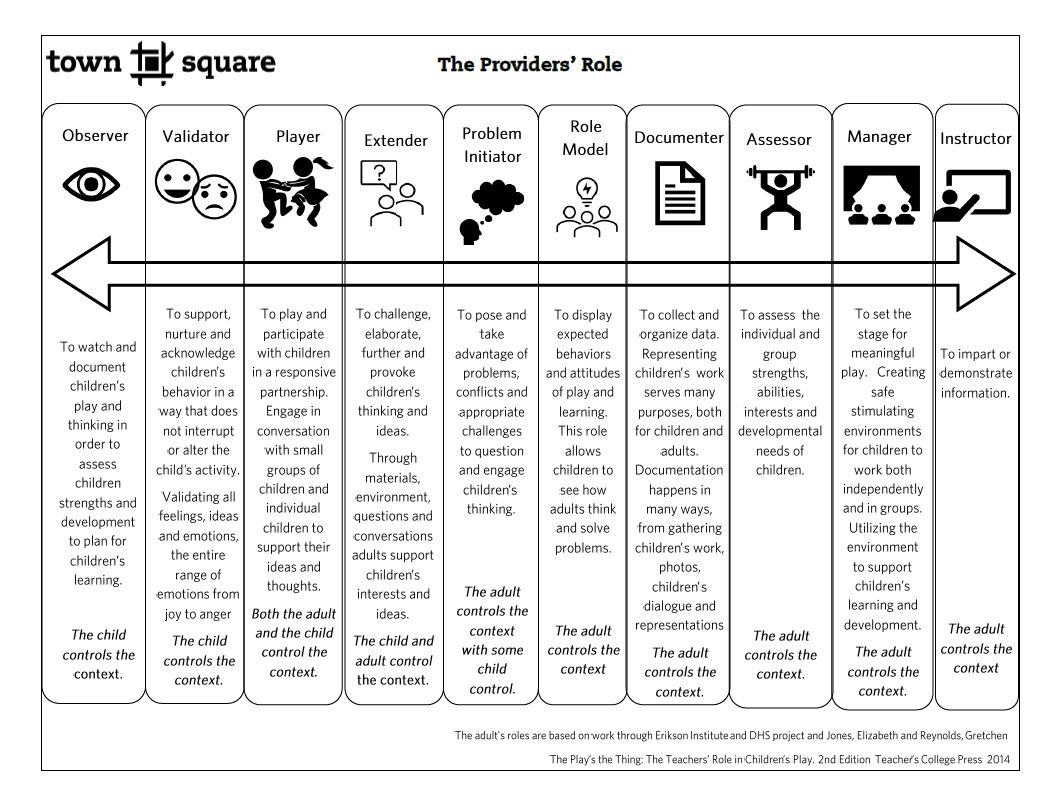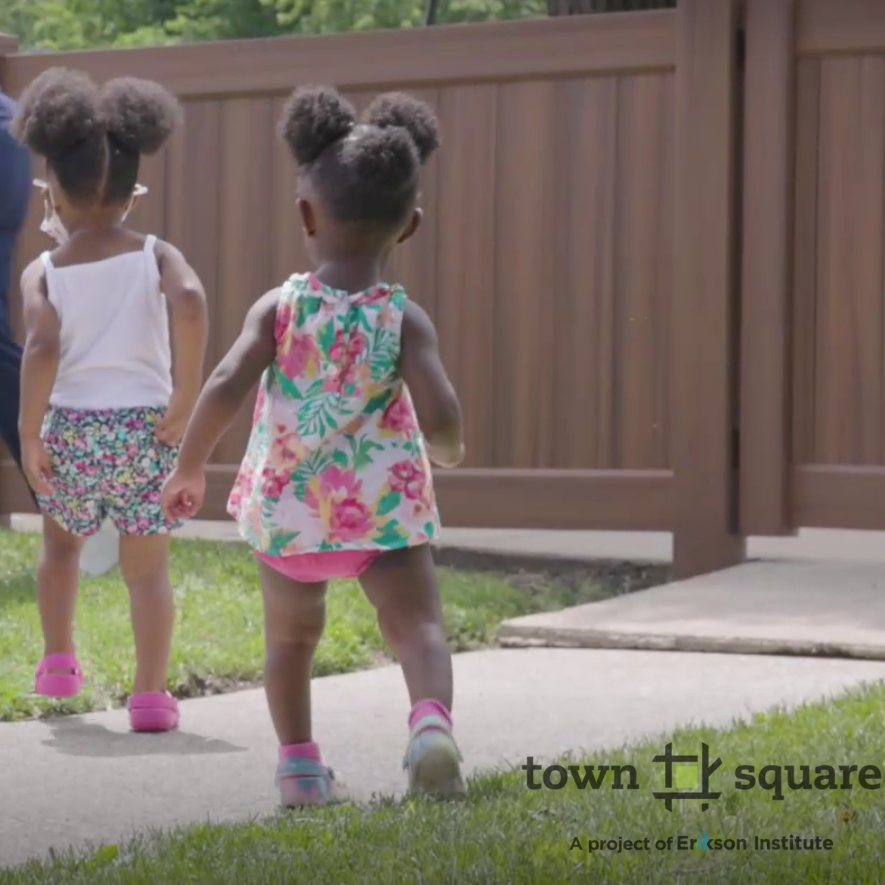Educating and caring for young children requires that providers take on various roles to support meaningful and playful experiences.
The roles providers take on include…
Observer – To watch and document children’s play and thinking in order to assess children’s strengths and development to plan for children’s learning.
Validator – To support, nurture and acknowledge children’s behavior in a way that does not interrupt or alter the child’s activity.
Player – To play and participate with children in a responsive partnership.
Extender – To challenge, elaborate, further and provoke children’s thinking and ideas.
Problem initiator – To pose and take advantage of problems, conflicts, and appropriate challenges to question and engage children’s thinking.
Role model – To display expected behaviors and attitudes of play and learning.
Documenter – To collect and organize data.
Assessor – To assess children’s individual and group strengths, abilities, interests, and developmental needs.
Manager – To set the stage for meaningful play.
Instructor – To impart or demonstrate information.
It is essential to note that these roles are not static, where one day you decide to be an observer and another extender. Instead, the roles change throughout the day, creating balance.
Based on work through Erikson Institute and DHS project and Jones, Elizabeth and Reynolds, Gretchen
The Play’s the Thing: The Teachers’ Role in Children’s Play. 2nd Edition Teacher’s College Press 2014




